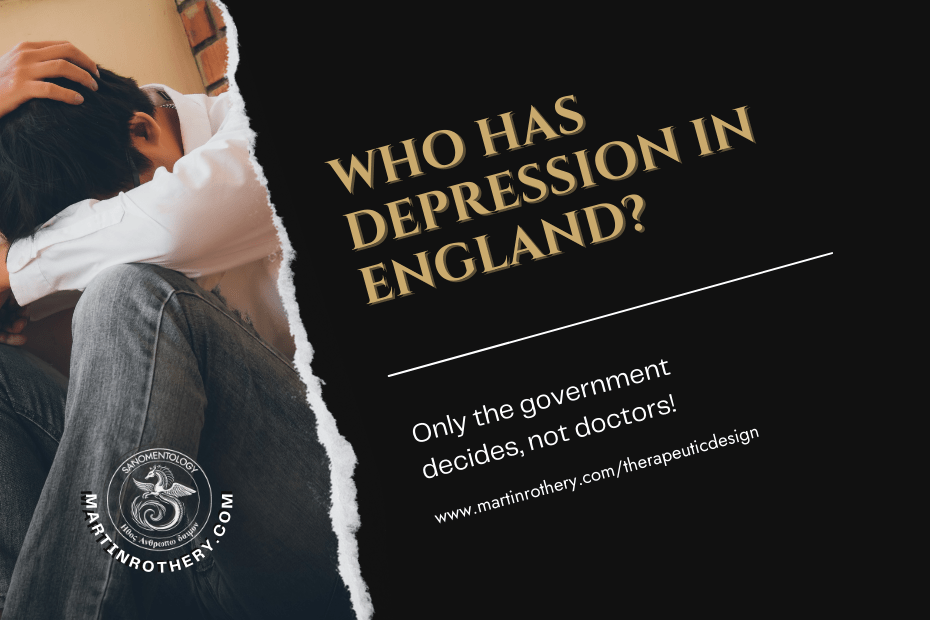Who has depression in England?
Only the government decides. Not doctors.
In England, the determination of who is suffering from depression has taken a new turn. It is no longer the doctors who make this call; instead, the government has stepped in. According to recent developments, “work coaches” employed by the government will be the ones to decide if an individual with depression is eligible for sick leave.
Reflecting on Desmond Tutu’s wise words, “There comes a point where we need to stop just pulling people out of the river. We need to go upstream and find out why they’re falling in,” it appears that the current government policy is metaphorically akin to going upstream and handing out “concrete boots,” ensuring those struggling will only sink further.
While it’s acknowledged that there are instances of system abuse, the reality of depression cannot be ignored. Mandating individuals to continue in jobs they despise, only to sustain a life of poverty, is not a solution. Such persecution is reminiscent of historical witch trials—where the innocent, if drowned, were declared not witches. Today, it seems if someone with depression commits suicide, only then is their illness acknowledged; if they survive, they’re deemed fit.
Furthermore, the recent statement by Mr. Sunak, “Hard work is always rewarded,” uncomfortably echoes the ominous phrase “work sets you free,” infamously known for its tragic implications in history. This parallel raises concerns about the direction of such policies.
The UK’s ranking as the second most miserable place to live globally, despite its wealth, points to deeper issues. With social and economic policies contributing to widespread poverty, the nation sees an average of 15 suicides per day, with many more attempts. Should the government maintain its current trajectory, these numbers are likely to rise significantly.
It’s clear that the problem isn’t the benefit system alone; it’s the entire structural framework that needs re-evaluation. And it needs to start at the top.
If you need help with anxiety, depression, or stress, visit https://account.sanomentology.com/anxiety/

